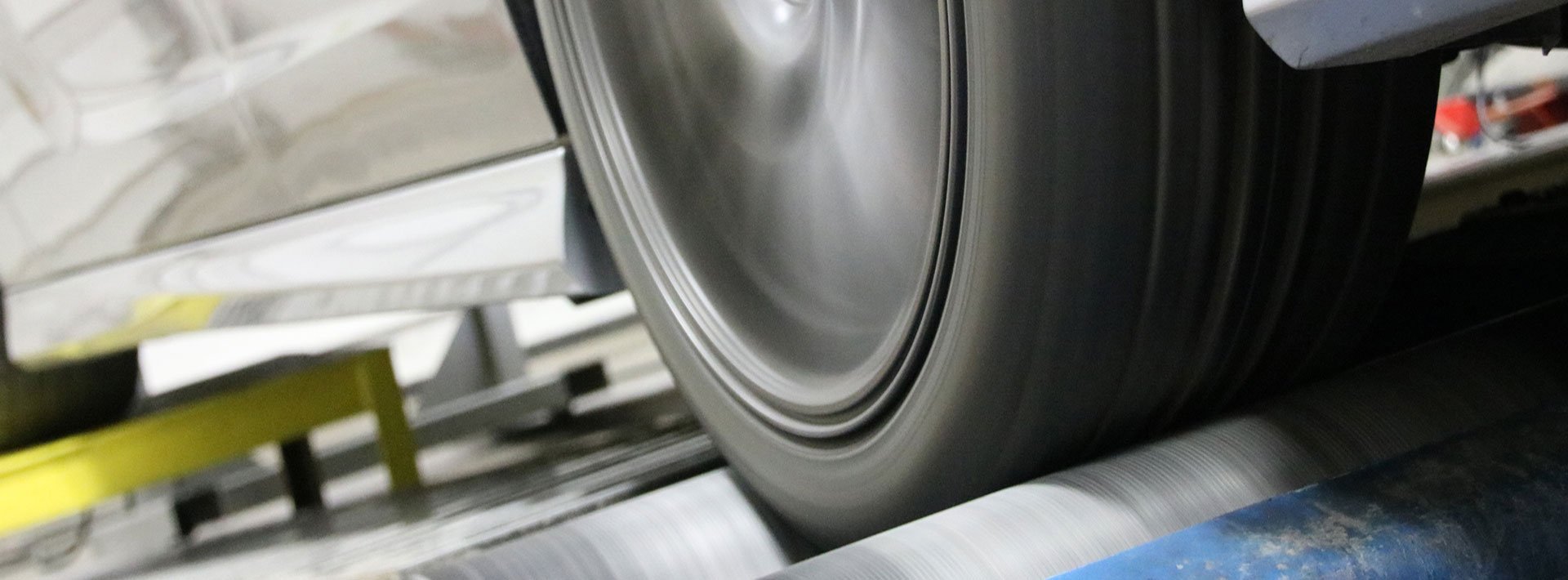ASTM D2247 Wheel Coating Moisture Resistance Test
The American Society for Testing and Materials (ASTM) D2247 specifies the procedure for determining the resistance of wheel coatings to moisture ingress. This test is crucial in ensuring that protective coatings used on automotive wheels can withstand exposure to moisture, which is a common issue leading to corrosion and degradation.
The ASTM D2247 test involves exposing coated specimens to a high humidity environment over an extended period and then evaluating the degree of water absorption through the coating. The primary objective of this test is to provide manufacturers with reliable data on how well their coatings perform under real-world conditions, thereby enhancing product longevity and safety.
The process typically includes several key steps:
- Preparation of coated wheel specimens
- Humidity conditioning in a controlled environment
- Measuring the weight gain or loss after exposure to moisture
- Evaluation against industry standards and acceptance criteria
The test is particularly important for industries where high reliability and performance are critical, such as automotive manufacturing. Compliance with this standard ensures that products meet stringent quality control requirements.
| Conditioning Time | Humidity Level | Specimen Weight Gain/Loss (%) |
|---|---|---|
| 72 hours | 95% | ≤1.0% for compliant materials |
The test results are essential for quality assurance and compliance with international standards such as ISO, ASTM, EN, and IEC. Automotive manufacturers rely on this data to ensure their products meet the highest safety and performance standards.
Benefits
The American Society for Testing and Materials (ASTM) D2247 Wheel Coating Moisture Resistance Test offers several significant benefits to manufacturers, quality managers, compliance officers, and R&D engineers. By conducting this test, automotive companies can:
- Evaluate the effectiveness of protective coatings in preventing moisture ingress
- Promote product longevity by ensuring resistance to environmental factors like humidity
- Enhance safety standards for vehicles by reducing corrosion risks
- Achieve compliance with international quality and safety regulations
- Improve overall performance of the wheels under various operational conditions
- Ensure consistent product quality across different batches and production runs
- Gain a competitive edge by delivering superior products to customers
The test results contribute significantly to improving brand reputation and customer satisfaction, making it an indispensable part of the manufacturing process.
Industry Applications
- Automotive OEMs (Original Equipment Manufacturers)
- Tier 1 automotive suppliers
- Aftermarket wheel manufacturers
- R&D and engineering teams focused on material science
- Procurement departments ensuring supplier compliance with quality standards
The ASTM D2247 test is widely used in the automotive sector to assess the moisture resistance of coatings applied to wheels. This ensures that the wheels remain protected against corrosion and degradation, especially important for high-performance vehicles.
| Industry Segment | Description |
|---|---|
| OEMs | Manufacturers who produce and supply wheels directly to vehicle manufacturers. |
| Tier 1 Suppliers | Suppliers of components, systems, or subsystems used by original equipment manufacturers (OEMs). |
| Aftermarket Manufacturers | Companies that produce and sell replacement parts for vehicles. |
The test is essential in these segments to ensure the highest quality of products, thereby enhancing the overall performance and reliability of automotive wheels.
Quality and Reliability Assurance
The ASTM D2247 Wheel Coating Moisture Resistance Test plays a pivotal role in ensuring that wheel coatings meet stringent quality and safety standards. By conducting this test, manufacturers can:
- Evaluate the effectiveness of protective coatings in preventing moisture ingress.
- Promote product longevity by ensuring resistance to environmental factors like humidity.
- Enhance safety standards for vehicles by reducing corrosion risks.
- Achieve compliance with international quality and safety regulations such as ISO, ASTM, EN, and IEC.
The test results contribute significantly to improving brand reputation and customer satisfaction. It is an indispensable part of the manufacturing process that ensures consistent product quality across different batches and production runs.
By adhering to this standard, automotive companies can gain a competitive edge by delivering superior products to customers. This not only enhances customer trust but also contributes to long-term business success.





